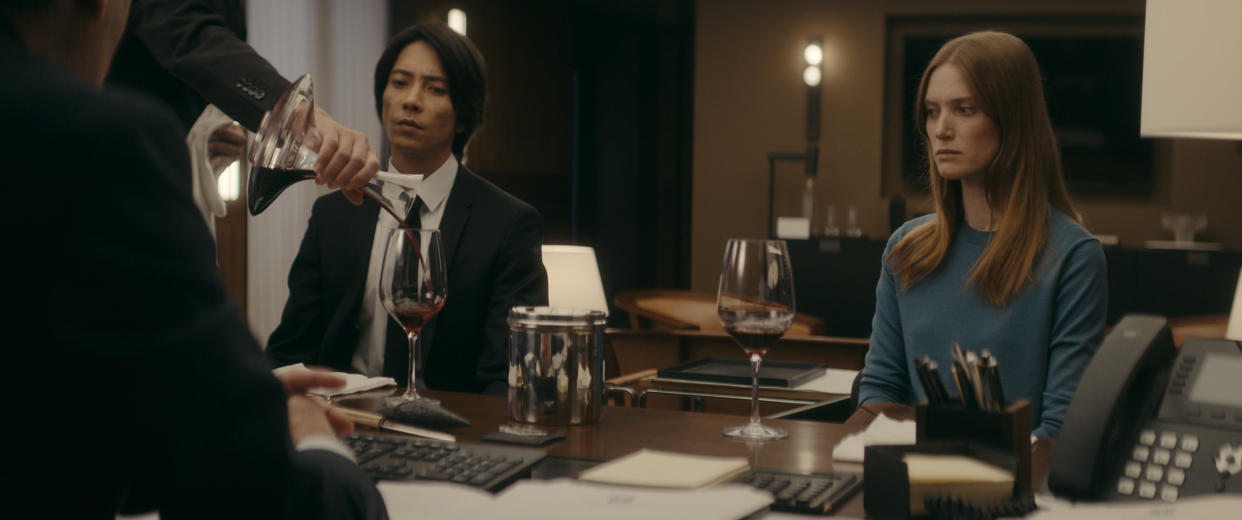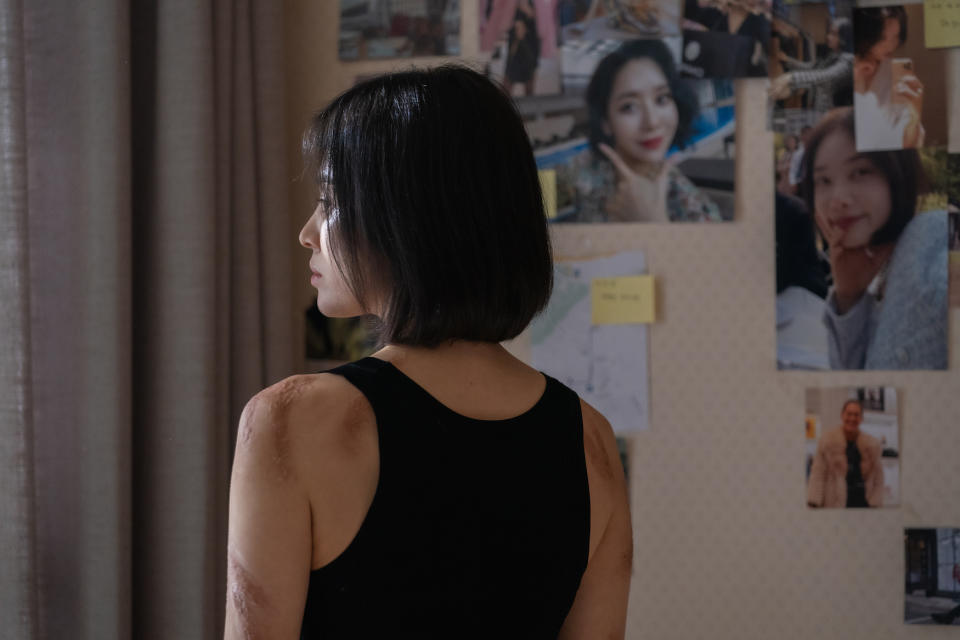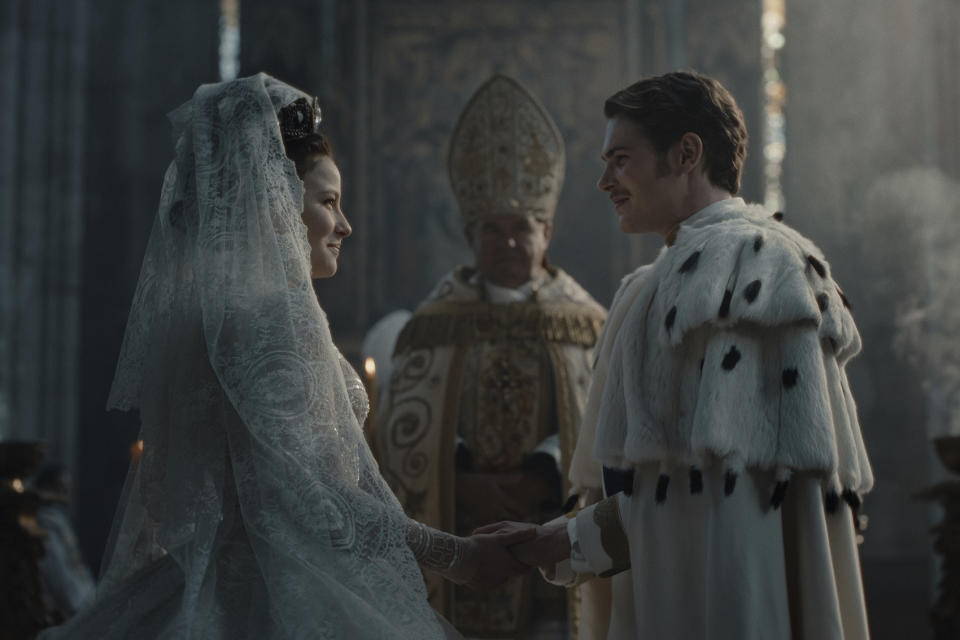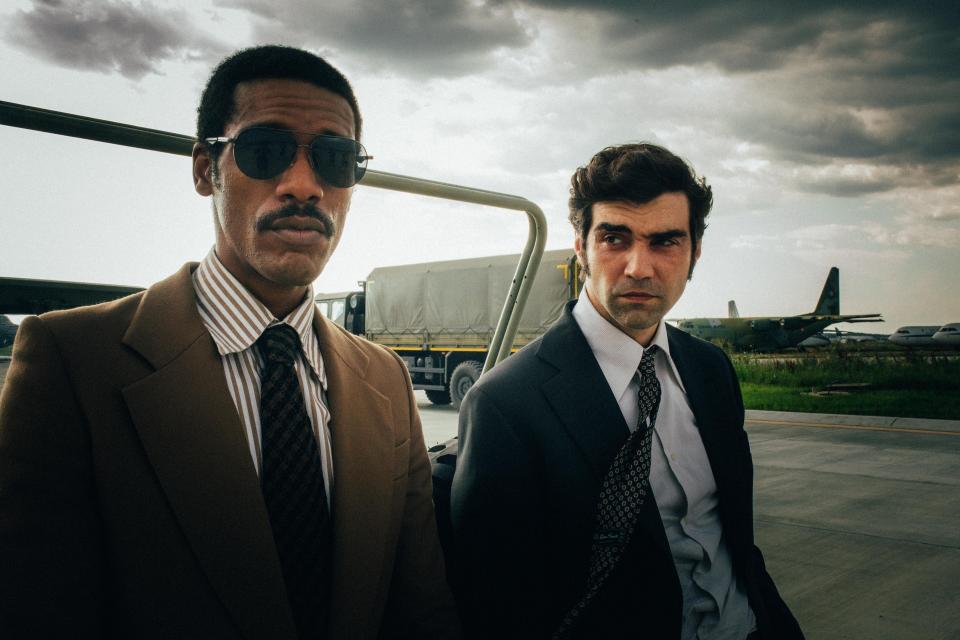Networks Are Looking for the Next ‘Squid Game.’ Many Already Have It.

We may never see other phenomenon like “Squid Game.” Hopefully we do. The Emmys are the kind of voting body/cultural institution that should get that yearly kind of external shakeup, just as film awards have seen non-English language productions catch fire with the public and capture awards attention. Getting to that point for “Squid Game” meant legendary word of mouth, Netflix backing, and a quality series with elements that made voting for it all the easier, a perfect Emmys storm.
But even if those lightning-in-a-bottle circumstances are seemingly impossible to recapture on purpose, the success of “Squid Game” did lay out a roadmap for other potential international hits to succeed on their own. A year after a genuine phenomenon, it seems like the TV world has largely waited for Season 2 of that show to be the next international series to enjoy that kind of success.
More from IndieWire
2023 Emmy Predictions: Outstanding Lead Actor in a Drama Series
2023 Emmy Predictions: Outstanding Lead Actress in a Drama Series
What if we didn’t have to wait?
In a theoretical world where international series didn’t have to overperform at an historic level to get that kind of attention, a lot of other pieces from the “Squid Game” puzzle are spread out among other worthy series deserving of at least a look. They may not end up in the biggest conversations when Emmy voting opens June 15, but here are a few elements from last year’s breakout that you can find in this year’s crop of shows from around the world.
Drafting Off of a Proven Winner

“Squid Game” was a high-concept execution of a basic premise. It’s a survival story that’s easy to grasp. Similarly, the year’s biggest Korean drama candidate that could have taken a slot operate on a similar basic premise. Netflix’s “The Glory,” released in two parts at the turn of the calendar year and right in the heart of Emmys ramp-up, tells the story of a woman out for revenge against the bullies from her school days. “The Glory” offers a different brand of twisted escapism. Led by Song Hye-kyo delivering the kind of exacting performance that requires different forms of transformation as the series goes on, “The Glory” lives in that murky area without clearly-defined heroes or villains. It’s a crowded Best Drama Actress field already, but few of those contenders do as much to carry their respective series as Song has done over 16 episodes.
The next few months are set to be dominated by HBO series about children struggling for control of their patriarch’s family business. (One is currently airing, but don’t forget the one debuting its third season right after the eligibility window closes.) For those looking for a less-caustic financial empire than news conglomerates or megachurches, consider…wine. “Drops of God” is the latest entry in Apple TV+’s upper echelon of primarily non-English language series (joining “Losing Alice” and “Pachinko”), one that centers on an elaborate, two-person competition for the reins of a world-famous wine guide and the largest private cellar in the world. One is the late renowned wine expert’s protege, while the other is his estranged daughter. Showrunner Quoc Dang Tran (whose French Disney+ series “Parallels” does teen-centered, dimension-hopping sci-fi far better than “Stranger Things” ever has) took on the challenge of adapting a popular Japanese manga and made it into a series that’s intimate, but still has a globe-hopping, cross-continental feel.
With “Euphoria” out of the race this year, the opportunity is there for something like “Class” to fill the void of the modern teen story. Itself an adaptation of runaway Netflix hit “élite,” “Class” follows a group of new students at a well-to-do private school in Mumbai as they learn the inner workings and teen hierarchies there. (For more on how “Class” brings some depth and insight into what could have easily been a simple, formulaic translation to a new country’s school system, read Proma Khosla’s piece on the new season.) There’s enough familiarity in the setup and difference in the execution that can lead to an accessible contender.
Sometimes, having an awards-ready story puts you right in a logjam. For all the serial killer stories released between last June and this June, the most well-told might well by “Black Butterflies,” a French Netflix drama. Confrontational in how it puts forth ideas of power, memory, and cyclical violence, the series (co-headlined by global star Niels Arestrup) makes for an interesting counter to the murder-centric docudramas that are at the heart of a number of campaigns this year, not just from Netflix’s side. Widen out the crime scope a little wider and you have the raw power of “Snabba Cash,” a Stockholm-set Netflix drama with a second season that’s as ready-made for drama-hungry audiences as its first one was.
Crime stories are one of the most fertile areas for recent Emmys success in the drama categories, outpaced maybe only by lush period pieces. Speaking of which….
Costumes and Color

An undeniable part of the visual “Squid Game” appeal was that massive collection of costumes. Though the irony of wearing them as a costume was probably lost on a good portion of the people who dressed up in pinks and greens and masks for Halloween, the fact it got that far was a testament to how distinct the visual appeal of the show tied into its ultimate success.
Though, costumes represents another area where breaking in this year would be extremely difficult. “Queen Charlotte” and “The Crown” already have the Netflix pushes, a shame considering that “The Empress” would make another period piece with its own elaborate pedigree. Premiering on the platform in the wake of “Dahmer” last fall, the German series looks at the mid-1800s ascension of Empress Elisabeth of Austria (Devrim Lingnau) as she helps lay the groundwork for the eventual nearly 50-year reign along with husband Emperor Franz Joseph I (Philip Froissant). With Hulu’s “The Great” entrenched in the comedy category, “The Empress” could have provided any other platform/network with a chance to crack a category that tends to favor the more lavish details of European royalty (especially one that features at least one character’s rise to prominence).
And a series doesn’t have to be fantastical or set in another century’s royal court to be appreciated for its distinctive craft elements. Take Prime Video’s Italian import “Prisma,” a gentle and grounded story of two twin siblings, each approaching the end of their teenage years embracing different parts of their identities. Each of the eight episodes is centered on a different color, which not only helps mark the chapter-by-chapter changes, but also gives each a distinct palette without ever feeling like a cheap storytelling gimmick. There’s a patience and care in the series that represents a different shade of boldness for those looking to single out a unique visual approach.
The “Game” Part Mattered Too

You can narrow down the “Squid Game” appeal to that visual flair, the metaphorical throughline, or the life-and-death stakes. But a lot of that secret sauce comes down to the fact that those setpieces were unpredictable. They tapped into a warped version of a variety show, where losing meant dying.
That’s a dark recipe to replicate, but “Alice in Borderland” already helped lay the groundwork for the “Squid Game” sensation to follow with its debut season in 2020, priming audiences for another eerie, other-wordly competition bathed in competition-based violence. “Alice in Borderland” takes place in a mysterious alternate version of Tokyo where inhabitants have to play in elaborate challenges to stay alive. The centerpiece sequence in the show’s opening episode saw a handful of its main characters wandering around a deserted, carless, pedestrian-free city square. Last December’s Season 2 kicked off with one of the more impressive car chases TV has ever put together, a bravura bit of setpiece magic from director Shinsuke Sato and a production design team that helped build an uncanny valley version of a giant Japanese metropolis, in some cases from scratch. (While we’re at it, let’s also get a Supporting Actor effort going for Nijir? Murakami, who single-handedly carries his portion of Season 2.)
“Oh Hell,” one of the international series that managed to survive the Great HBO Max Content Purge of 2022, has a different form of the game-like, anarchic spirit that voters recognize on the comedy side. Debuting on the platform last fall, it follows listless Helene as she navigates a job she doesn’t care about, a less-than-fulfilling romantic life, and her impulsive decision to make a cello teacher the man of her dreams. It’s overly reductive to call this show the German “Fleabag,” but it’s ideal for anyone desperate for that style of laughs in the comedy categories. Mala Emde delivers the kind of central performance tightrope walk that’s fascinating to watch whether or not Helene gets away with her schemes and increasingly outrageous life choices. What better game is there?
Based on a True Story

Yes, we’re well aware that there (probably) isn’t actually some private island where desperate competitors are vying to outlast 455 others for a giant cash prize. But if “Squid Game” is truly a unique instance in international TV at the Emmys, there’s also a chance to dip into a successful area that existed long before it: Draw from real life.
As Disney+ and Hulu reach their own crossroads (and see the gradual global dominating reach of their core franchises starting to deflate), they have a steadily building library of international series to help buttress the offerings in the minds of people looking to sign up for more than superheroes and space. Last year’s “Oussekine” brought a four-part telling of the 1986 police killing of student Malik Oussekine, and his family’s subsequent search for justice. This year, there’s “The Good Mothers,” a British-Italian co-production about a group of woman who worked together to break up the ‘Ndrangheta crime family in the Calabria region of southern Italy. Set in the not-so-distant 2010, the series also has the global-attention pedigree of airing at the Berlinale back in February.
Maybe the solution going forward is something closer to what “Spy/Master” will look to do for a revamped Max in the weeks to come. The latest in a line of Cold War dramas, this new one will turn its attention to a global effort to extract a burned undercover agent inside the inner circle of former Romanian dictator Nicolae Ceau?escu. Victor Godeanu (Alec Secareanu) is a fictional character, but the idea of setting a co-produced story against the backdrop of a real-life event might be a growing idea for an international TV market. Speaking at SeriesFest in Denver last week during a panel focusing on co-productions, Secuoya Studios executive Sergio Pizzolante said, “I would recommend historical fiction, if you find a big historical event and you find a reason for you to tell that story…It’s easier said than done, but that’s a good point to start.”
Bringing all of these shows closer to the foreground in the Emmys conversation serves a bigger purpose, especially for those platforms still looking to define what they bring to a crowded streaming field. If investment of time and resources into awards strategies is ultimately a different form of marketing to show off to the rest of the TV world what you stand for and what you have to offer, these are the kind of shows that are worth a push, even if they’ll never be a generational-level phenomenon.
Best of IndieWire
2023 Emmy Predictions: Outstanding Lead Actor in a Drama Series
2023 Emmy Predictions: Outstanding Lead Actress in a Drama Series
Sign up for Indiewire's Newsletter. For the latest news, follow us on Facebook, Twitter, and Instagram.

